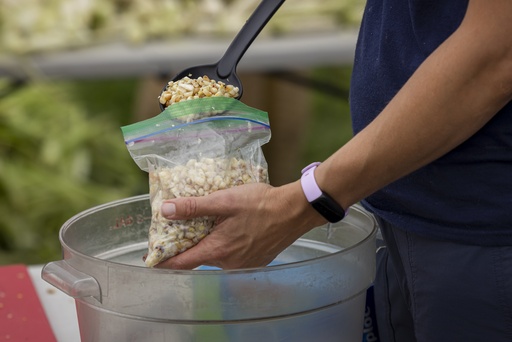This spring, heavy rain caused a river to overflow onto the Oneida Nation in Wisconsin, impacting their white corn crop. Despite replanting efforts, the wet conditions led to poor growth with patchy and stunted corn. The harvest was significantly diminished, affecting the community’s food supply and canceling important cultural events like the harvest moon celebration. Indigenous growers are facing challenges as climate change brings more uncertainty to traditional farming practices.
Oneida people view white corn not just as food but as a vital part of their heritage and community gatherings. The non-profit organization Ohe·láku plays a central role in supporting families in planting and harvesting crops together. However, this year presented unprecedented difficulties due to fluctuating weather conditions, impacting both the quantity and quality of the crop. The communal approach to farming couldn’t fully withstand the extreme weather events experienced.
As Indigenous growers strive to adapt to changing climate patterns, they are incorporating sustainable land management techniques such as using cover crops to enhance soil health and resilience against future weather extremes. Despite their efforts, the realities of climate change pose formidable challenges that go beyond their control. The impact on crop yields highlights the urgent need for resilience and innovation in traditional farming practices.
University research is also exploring sustainable Indigenous farming methods that have been passed down through generations. Efforts to integrate these practices into mainstream agriculture are gaining traction, emphasizing the need to prioritize stewardship of the land over maximizing yields. Indigenous knowledge and practices are increasingly recognized for their value in building agricultural resilience in the face of environmental uncertainties.
The struggle of Indigenous communities like the Oneida Nation underscores the broader implications of climate change on food security and cultural heritage. As they navigate the evolving landscape of agriculture, there is a growing recognition of the importance of preserving traditional knowledge and adapting to new environmental challenges. By combining ancestral wisdom with modern research, Indigenous growers are working towards sustainable solutions to protect their crops and preserve their cultural connections to the land.
